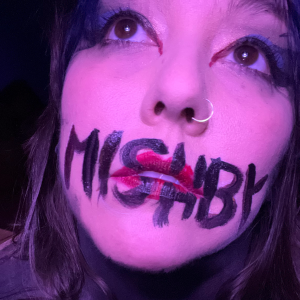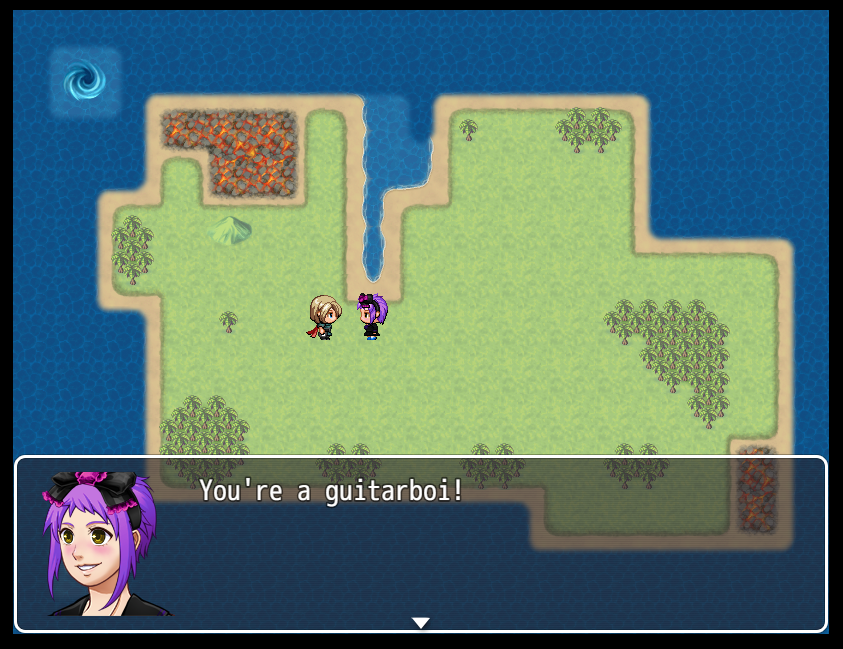Bandcamp Friday Friends! Dec 2022 update!
It’s another Bandcamp Friday! What a great day to pick-up The Salacious Crumbles‘ pay-what-you-want EP, “Carbonite,” music by a bunch of our Social Justice Bards, AND my solo stuff!
My newest track is a collaboration with electronic artist DANI ORTHANC called “MISHBY”, available for pay-what-you -want now!
Recent releases:
- DANI ORTHANC: Lofi beats and experimental electronica
- New track is “MISHBY”
- The Faithful Sidekicks: west coast comedy nerds with heart
- Grab the newest record “Dark Side of the Meep”
- Sunday Comes Afterwards: Songs and clever lyrics for all your varied needs!
- Holiday EP “We Need a Little Cryptid” out now!
- Valentine Wolfe: the female-fronted metal duo of musick most dark
- New single is “If She Had Been the Mistletoe”
- DJ McGuire: truly, you aren’t cleared for these witty parody lyrics and walking blues
- Muppety-parody “McConnell/McCarthy”hits close to home
- Daniel Gunderson: folk and filk and sick riffs
- Solo debut is “Remember”
- Liam Pippin Vaughan: Multi-instrumentalist and mediaeval enthusiast
- Snag debut LP “Madder & Clay” plus the EP “Cantina Corr: Sci-Fi Club Music Inspired by Star Wars”
- TheFifthSister: moody nerdy battle songs
- It’s Halloween all year in my house with their October track, “Don’t Go Out Alone”
- Mikey Mason: Nerd rock senpai and soulful songswriter
- If you like missing Halloween, check out the single “Ghost of Halloween”
- Leslie Hudson: fiery storytelling through music
- New record “12 Months a Year” was formerly a Patreon exclusive, but now it’s out for all!
- Catch some of these folks live on my weekly Triple Six show!
More music by friends!
- The Blibbering Humdingers: Nerd wrockers family band and Bards of of Tigtone
- The Misbehavin’ Maidens: Nerdy and dirty feminist folk music!
- Get Set Go: the pop-punk-rock brainchild of Mike Torres
- Liam Pippin Vaughan: Multi-instrumentalist and mediaeval enthusiast
- Christian Lipski: Solo project from a member of the PDX Broadsides!
- Leslie Hudson: the Tori Amos of nerd music
- Cheshire Moon: powerhouse folk!
- Wreck the System: nerdcore at its finest
- Chuck Parker: sensitive lyrics and music from the man in every band
- Elizabeth Lain: composer, urban mermaid
- Dr. Cacophonie: percussionist and multi-instrumentalist telling it like it is in their own voice
- Foot Pound Force: literal rocket rock
- The Beadrills: the best Poke-band
- Pete Pawsey: new track is “Tout Mettre Le Feu” and it’s an acoustic jam!
- Vince Conaway: Hammered dulcimer Daddy
- Hawthorn and Holly: pop-folk explosion!
- The Brobdingnagian Bards: the originals of my new Celtic fascination
- Andrew McKee: The Irish Bard
- Marc Gunn: Autoharp Daddy
- Cathy McManamon: singer/songwriter and multi-instrumentalist with an angelic voice!
- The PDX Broadsides: Folk pop nerdery
- Bryan Baker: Imagine Greg Universe singing Springsteen
- Gray Rinehart: excellent and introspective songs
- The Night Sabers: pop-punk for WEEEEEEEEBBBBSSSS
- DJ McGuire: truly, you aren’t cleared for these witty parody lyrics and walking blues
- The Salacious Crumbles: fangirls without shame!
- Lady Orange: folk and synth pop!
- Marc with a C: sensitive indie romps
- Ronen: comedy, rock, and nerdiness!
- Thomas Benjamin Wild, Esq: filthy as sin and twee as hell
- Jeff Whitmire: deft comedy lyrics and joy
- Jonah Knight: the spooky Americana master
- Carrie Dahlby: the “singer of funny joke songs” herself
- TheFifthSister: moody nerdy battle songs
- Beth Kinderman: that good nerdy Americana/Celtic
- Sunnie Larsen: a voice and musical talent, you can hear her smiling when she sings!
- JANXXX: electronic hooks and production that shakes my booty
- Sarah Donner: indie folkpop, catlady
- Juliana Finch: Southern-fried singer-songwriter
- The Doubleclicks: nerd folk with hooks for days
- Marian Call: unapolegetic pop rock with a retro sensibility and tight production
- J.S. Drell: experimental nerdy hip hop!
- Sarah Shay: nerdy acoustic pop
- Animalweapon: electronic and raw
- Rhiannon’s Lark: An angelic voice wrapped in sassy lyrics, NEW RGB track!
- Insane Ian: comedy! All revenue from HP-themed music is being donated to fight TERFS
- Metricula: nerdy solo and folk music! NEW Halloween Track!
- Valentine Wolfe: the female-fronted metal duo of musick most dark
- Mikey Mason: Nerd rock senpai
- The Faithful Sidekicks: west coast comedy nerds with heart
- Sleepy Sword: a new folk rock project, check out the track “Worry”
- Tom Smith: the world’s faster filker, new political material up!
- Michael Kazalski: bass rocker!
- The Courtesan & The Cabin Boy: comedy Renn Faire delights!


